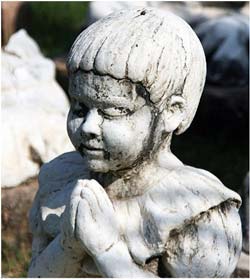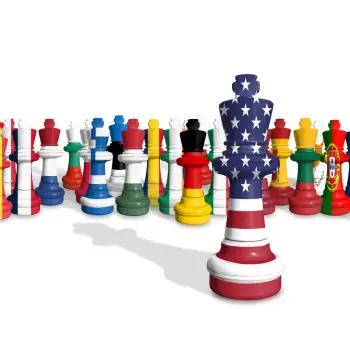By Bruce Epperly
 As a Baptist child growing up in California's Salinas Valley, I often watched faith healers on television on Sunday afternoons. I recall Kathryn Kuhlman purring to the camera, "I believe in miracles," and Oral Roberts shouting "Be healed!" as he struck supplicants on the forehead. A kitchen magnet in our home pronounced, "Prayer changes things."
As a Baptist child growing up in California's Salinas Valley, I often watched faith healers on television on Sunday afternoons. I recall Kathryn Kuhlman purring to the camera, "I believe in miracles," and Oral Roberts shouting "Be healed!" as he struck supplicants on the forehead. A kitchen magnet in our home pronounced, "Prayer changes things."
Nearly fifty years later, I'm still interested in the power of prayer and the meaning of the gospel healing stories for persons today. Although I describe myself as a progressive Christian, I regularly pray for the sick, lay hands on persons in need, practice a hands-on healing energy technique known as reiki, and anoint persons seeking healing and wholeness. I have spent nearly twenty years trying to reclaim Jesus' healings in my life and ministry in dialogue with medical technology, complementary medicine, spiritual diversity, and biblical scholarship. I have written three books specifically aimed at exploring theologically-sound ways that progressive and moderate Christians can claim Jesus' healing ministry today: God's Touch: Faith, Wholeness, and the Healing Miracles of Jesus (Westminster/John Knox Press); Reiki Healing Touch and the Way of Jesus, with Kate Epperly (Northstone); and Healing Worship: Purpose and Practice (Pilgrim Press).
Reflections on the resurrection invite us to ponder how much we can expect of God and how much we can expect of ourselves in the context of our technologically-sophisticated time. We live in a very different world than Jesus, the gospel writers, and Jesus' first followers, and we have different names for diseases and different understandings of their causes, but like the early Christians, we still face chronic illness, debilitation, and death and we still need healing.
As I consider the impact of the gospel healing stories on people today, I want to share three theological affirmations that have guided my teaching and ministry. My first affirmation is that Jesus healed and cured people by mediating divine power and energy. As one scripture notes, power flowed from Jesus to a woman who had suffered from a blood flow for twelve years. My second affirmation is that physical and spiritual transformation involves a dynamic call and response, a partnership between God's loving and energetic presence and the openness of persons and communities. Prayer, faith, and meditation make a difference, even though they are not all-powerful. My third affirmation is that God's energy is present in all things, working toward healing, wholeness, and abundant life. God does not punish persons with disease or earthquake, but wants us to be healthy and whole.
Now, it is important to affirm both the limits and possibilities of healing, if we are to faithfully respond to persons in need and sustain our own prayer lives. Let me share some aspects of healing, grounded in my theological belief that health and disease are, in good measure, the result of many factors and not just one. For example, we may become ill due to the interplay of issues of lifestyle, environment, faith, and DNA. Recovery may involve opening to God through prayer and meditation, but it may also involve antibiotics, chemotherapy, and surgery. God works in and through the many factors of our lives, both spiritual and medical. Our prayers may open a field of force, or awaken energies, which allow God to be more present in our lives and in the lives of those for whom we pray.
From this perspective, healings and cures are not supernatural violations of the "laws of nature" but the activation of natural forces already inherent in our lives and in the world. The world and our bodies are much more marvelous than we can imagine; energies exist that remain untapped. Just as it is said that we use only a small portion of our intelligence, it may also be the case that we are only aware of a small portion of the spiritual energies resident in our lives, the world, and God's care for us. I believe that God is intimately related to us, seeking the best outcomes for us, and that God's personal quest for wholeness is related to our openness and the openness of others as well as the health care we receive.
A multi-factorial approach to healing, curing, and praying avoids three problems involving our understanding of healing and illness: 1) illness and healing are entirely a matter of God's will; 2) illness and healing are entirely related to our faith (for example, if we have enough faith, we will get well; lack of faith in God stands in the way of healing); and 3) illness and healing reflect our state of mind in a linear fashion (for example, Louise Hay and the authors of The Secret suggest that we "create our own realities": we bring illness upon ourselves by our thoughts and can recover only by a positive change in consciousness). Each of these approaches either singles out God as the source of disease or blames the victim for her or his condition, which may lead to guilt, hopelessness, or, surprisingly, grandiosity.




